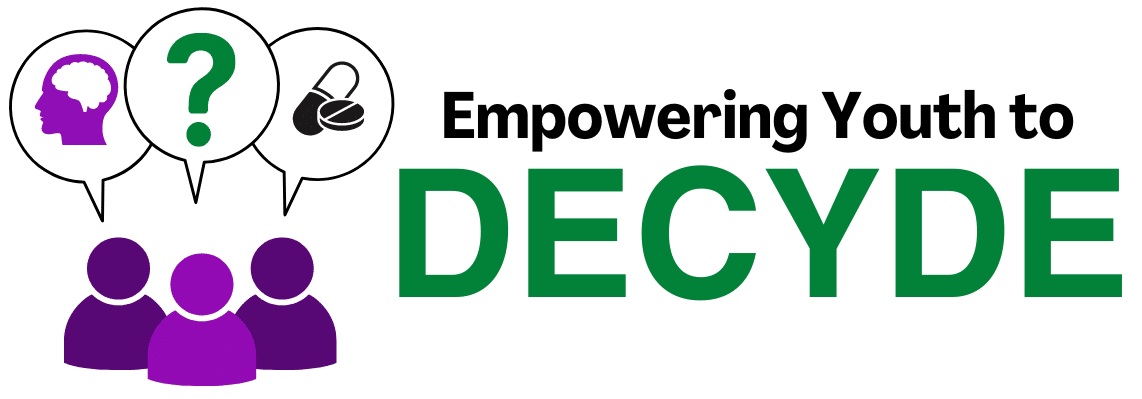Grade 9
Home » Teacher Portal » Grade 9
Overview
The DECYDE Grade 9 program includes two lesson plans, each with multiple activities. Each lesson contains a detailed plan, interactive activities, teacher discussion guides, and supplementary materials. Lessons can be taught in sequence or used individually based on your classroom needs.
Lesson 9.1: Substance Use, Addiction, and the Role of Harm Reduction
Students will examine the importance of brain health and the impact of substance use on brain function. They will develop an understanding of addiction, the substance use spectrum, and harm reduction principles, while practicing critical decision-making through the analysis of real-world scenarios.
Lesson 9.2: Sexual Health and Substance Use
This lesson will address the connection between sexual health and substance use, with a focus on relationships and communication, the impact of substances on sexual health, the importance of consent and preparation, and strategies for responding if situations become unsafe.
Some relevant materials include:
The Skills-Based Health Education (SBHE)
This approach is used throughout the lesson plans to enable students to learn skills that promote and protect their health and well-being.
The FACE Decision-Making Model
It is used to guide students through their responses to scenarios within the lesson plans.
Harm Reduction
Provides students with knowledge and practical skills to make safer, more informed choices. The approach emphasizes reducing the risks and negative consequences of substance use, rather than focusing solely on abstinence.
Neurodiversity
Neurodiversity can involve heightened vulnerabilities that may influence how students interact with substances. Educators can support neurodiverse learners by using inclusive, strengths-based approaches that promote understanding, safety, and participation in DECYDE lessons.
Stigma
Stigma and judgment around substance use can negatively impact youth, making it harder for them to seek help or make safer choices. Educators play an important role by using non-judgmental approaches and first-person language to foster a supportive environment that encourages open conversation and help-seeking.
Trauma-Informed Practices (TIPs)
TIPs is a strengths-based approach that acknowledges the impact of trauma and helps restore safety, control, and empowerment. Educators should actively integrate these principles into their teaching to create safe, supportive, and empowering learning environments.
Refer to the following information to aid in the delivery of the lessons:

Mental Health and Substance Use Health Glossary
Provides definitions that promote informed and respectful dialogue in the classroom and other learning environments.

Educational Materials
Consist of concise and accessible information for educators on key topics related to substance use, mental health, well-being, and skills-based health education. The relevant resources applicable for each lesson plan are referenced throughout.

Substance Snapshots
Offer concise and accessible overviews of various substances. Each Snapshot outlines what the substance is, how it is used, its potential effects, when to seek emergency help, and strategies to stay safe. The Snapshots relevant to the lesson plans are referenced throughout.






